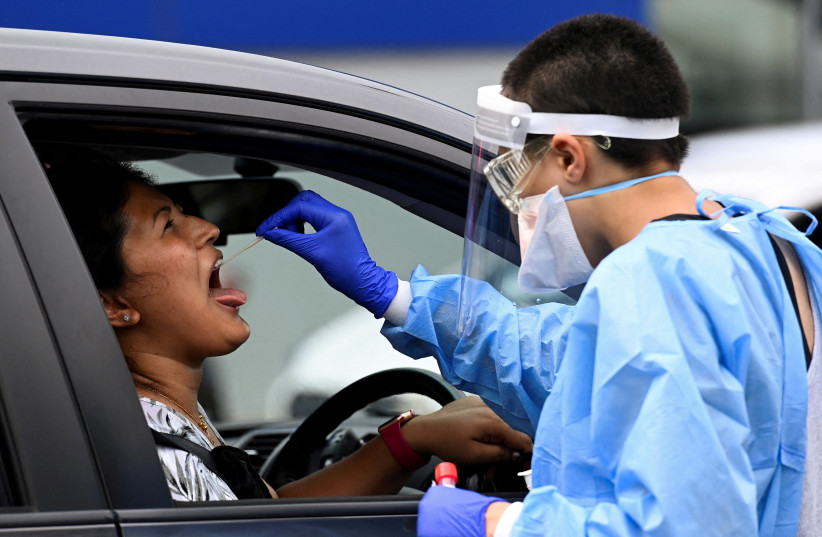Both Israel and Australia had impressive achievements during the COVID-19 pandemic – Israel was a model for rapid distribution and injection of vaccines into the whole population and Australia was the first country outside of China to isolate the virus and had one of the world’s lowest death rates from it.
A group of 15 leading Australian public health experts and clinicians will visit Israel between September 4 and 8 for a high-level exchange of lessons about the management of the COVID-19 pandemic.
Hosted by the Health and Foreign Affairs ministries, the delegation will be led by Prof. Sharon Lewin, director of the Peter Doherty Institute for Infection and Immunity and co-chairperson of the National COVID-19 Health and Research Advisory Council.
Others in the delegation will include some of Australia’s highest-profile public health leaders such as Dr. Kerry Chant, chief health officer in New South Wales, Prof. Allen Cheng and others who helped guide government policy and the public’s understanding of the pandemic from its beginning.
What did the pandemic bring out of Israel and Australia?

When the pandemic broke in early 2020, Israel quickly showed itself to be a world leader in real-time research, analysis and data integration.
Much of the world’s understanding of the efficacy of vaccines and boosters has come from Israel, according to the non-profit AUSiMED, which fosters collaborative biomedical research and knowledge exchange between world-leading clinicians and scientists in Australia and Israel and organized the upcoming visit.
Australia’s rapid response, community engagement and use of mathematical modeling to guide public policy resulted in its low mortality rate.
What is the focus on the visit?
A key objective of the visit is the development of more substantial partnerships that can inform continuing management of COVID-19 and help prepare Australia, Israel and other countries for any future public health threats.
“Israel was able to provide real-time research and analysis of what was unfolding in their country and we’re very interested in how they managed that so well,” said Lewin.
“Israel was able to provide real-time research and analysis of what was unfolding in their country and we’re very interested in how they managed that so well.”
Prof. Sharon Lewin
“On this tour, we’re hoping to learn a lot more about Israel’s health informatics and data systems and how similar approaches could be integrated into the Australian public health response," she said.
"We’ll also be looking at Israel’s vaccine rollout to vulnerable and vaccine-hesitant communities. One of the most important discoveries Australia made during the pandemic was linking antibody levels following vaccination to clinical outcomes and the Israelis also want to learn more about that.”
Delegates will meet with department heads in the Health Ministry in Jerusalem and clinicians and academics from Israel’s leading universities and hospital networks, including the Hebrew University, Tel Aviv University, the Weizmann Institute of Science, Sheba Medical Center, Hadassah-University Medical Center, Tel Aviv Sourasky Medical Center and the Clalit Research Institute.
“Australia and Israel are strategic partners in trade, culture and health," according to AUSiMED chairman Antony Cohen, "and have much to offer each other and the rest of the world in terms of COVID-19 lessons.”
